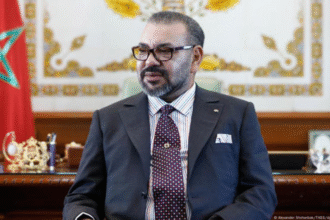By Emily Sims
New York, USA–African leaders urged to shift focus from partisan appointments to policy changes for job creation. In a recent statement to an international business and policy forum in New York, USA, labor market expert and public policy professional Jones N. Williams criticized African leaders for their approach to job creation, emphasizing that government is not a job creator but a facilitator of an enabling environment for the private sector.
In light of the increasing number of young Africans forced to migrate under perilous and inhumane conditions, calls are growing for African labor ministries to prioritize the advancement of employment opportunities, particularly for young people. Experts argue that the failure of these agencies to effectively manage labor market services is a significant contributor to the problem.
According to Jones N. Williams, a former state administrator of the U.S. Bureau of Labor Statistics Programs and labor market analysis and information in Maryland, “Across Africa, especially sub-Sahara Africa, unemployment has become the fundamental national crisis.” He emphasized that labor ministries are not mere regulatory bodies but employment policy institutions with a primary goal of fostering job creation and workforce development, alongside ensuring workers’ welfare.
While the welfare of workers, job seekers, and retirees through fair and safe working conditions remains important, the core mandate of these ministries should be advancing employment opportunities and protecting workers’ rights and benefits through the administration and enforcement of labor laws.
“Labor ministries across Africa must be capacitated with cracked teams of policy and program professionals as well as top-notch labor economists with a focus on industry innovation, workforce development, and a private sector frame of mind,” Williams asserted. He believes that a more proactive and strategic approach is crucial to address the root causes of forced migration.
The changing global landscape, marked by increasingly stringent migration policies in Western nations like the United States, underscores the urgency of the situation. “Western nations, including the United States, are no longer willing and prepared to accommodate economic migrants,” Williams stated, emphasizing that this should serve as a wake-up call for African leaders and governments to prioritize labor and, in particular, job creation initiatives.
The message is clear: Investing in robust labor ministries equipped with the expertise and resources to drive job creation and workforce development is essential to curbing forced migration and building a more prosperous future for young Africans within their own countries. The time for action is now.
Williams stated, “Job creation is not about putting partisans and others in government positions. The role of a labor ministry should be to coordinate across sectors and institutions to ensure employment opportunities are created, labor supply and demand are calibrated efficiently and effectively.”
The expert’s comments come at a time when unemployment rates remain high in many African countries, despite efforts by governments to address the issue. According to the International Labor Organization, the unemployment rate in Sub-Saharan Africa stood at 6.1% in 2021, with youth unemployment at a staggering 12.9%.
Williams pointed out that governments can play a critical role in creating an enabling environment for job creation, but this requires a shift in focus from partisan appointments to policy changes that foster private sector growth.
“Governments should prioritize policies that promote entrepreneurship, innovation, and investment. This includes reducing red tape, improving access to finance, and enhancing infrastructure development,” Williams said.
He also highlighted the importance of education and skills training programs that align with the needs of the private sector.
“There is a need for governments to invest in education and skills training programs that equip the workforce with the skills that employers require. This will not only improve the employability of young people but also increase productivity and competitiveness,” Williams added.
The expert’s comments have been met with support from various stakeholders, including business leaders and civil society organizations.

“We welcome Jones N. Williams’ comments and believe that African leaders must prioritize job creation policies that foster private sector growth. The focus should be on creating an enabling environment that allows businesses to thrive and create jobs,” said Jane Muthoni, a Kenyan business leader.
As African countries grapple with high unemployment rates, experts like Jones N. Williams emphasize the need for a paradigm shift in job creation strategies. The focus should be on policy changes that promote private sector growth, entrepreneurship, and skills development, rather than partisan appointments.
In conclusion, Williams’ statement serves as a reminder to African leaders that job creation is a collective responsibility that requires collaboration between the public and private sectors, civil society organizations, and development partners. It is only by working together that we can address the unemployment crisis and create a more prosperous future for all Africans.
According to the United Nations, “More than 90 per cent of Africa migrants would make perilous Europe journey again, despite the risks.”










